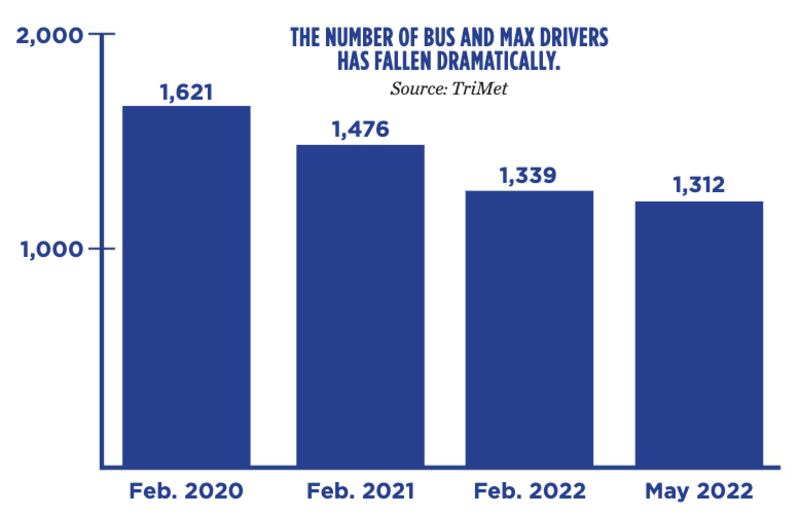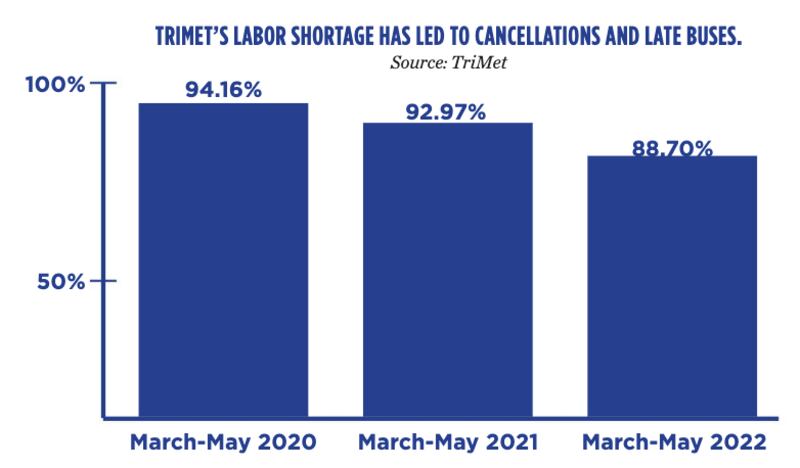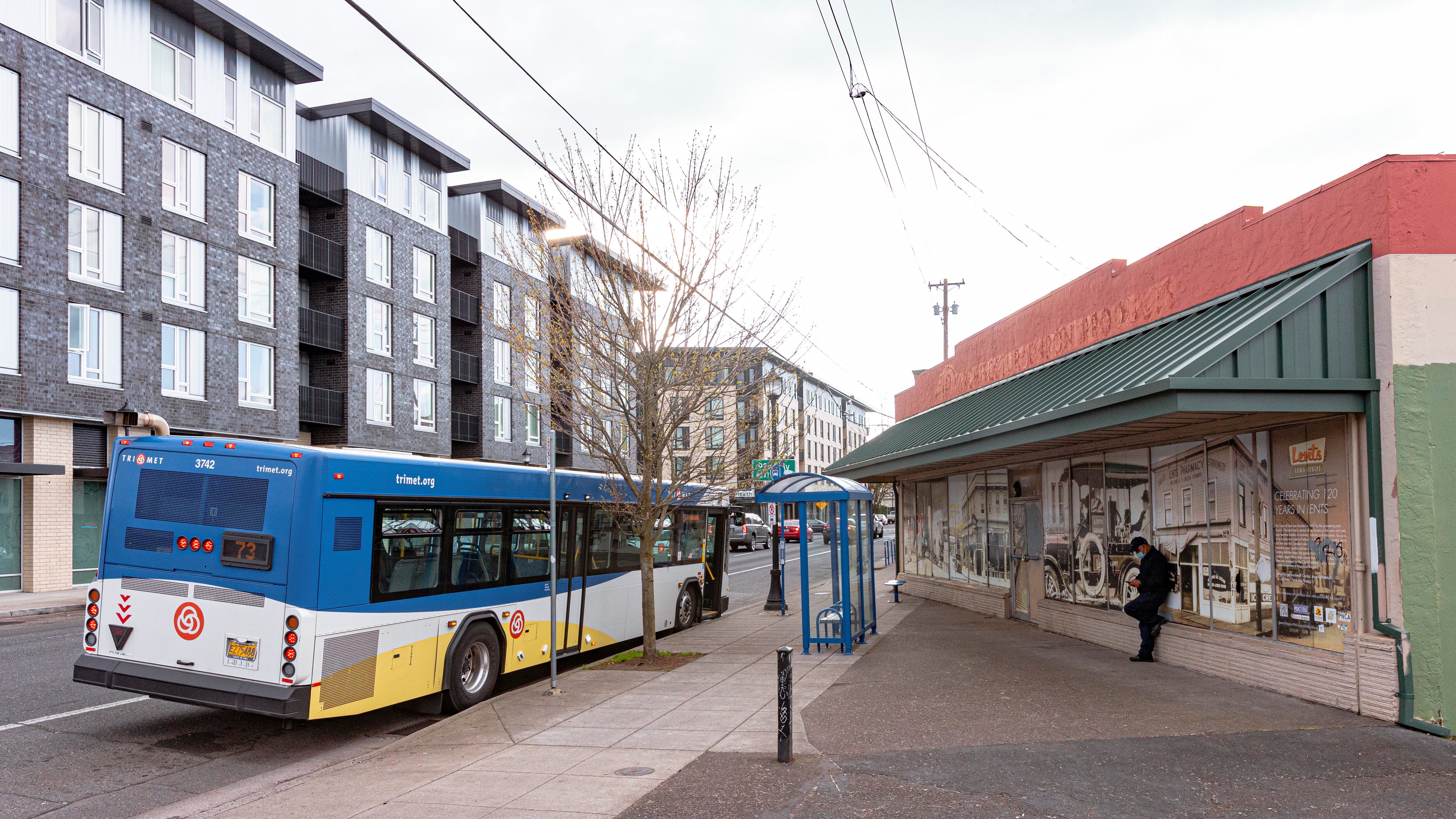On July 8, TriMet hit transit riders with bad news: It will reduce service on 10 bus lines, canceling lines in Cedar Mill and South Beaverton.
The transit agency is still reeling from the initial shock of the COVID-19 pandemic, in which it got whacked by the health risks of congregating in enclosed public spaces and by commuters working from home. Bus ridership plummeted 69% between February and April 2020.
Passenger numbers took a long time to recover, which led to driver resignations and retirements. Now, with ridership up—70% higher in May 2022 than it was in May 2020—TriMet doesn’t have enough employees behind the wheel. The agency is dealing with a critical driver shortage—what it calls “the largest operator shortage in agency history.”
TriMet spokeswoman Tia York notes that staffing went from its highest level ever, just before the pandemic, to its lowest.

The result? Delays.
In May 2022, the latest month for which TriMet has data, just 88.5% of buses ran on time, which means they were no more than a minute early or five minutes late.
That on-time performance has trended downward with staffing.

Sarah Iannarone, executive director of the Street Trust, says the pandemic has added to pressure on transit from hostile corporations and indifferent transportation officials. “This systemic abandonment of transit as a priority is a hidden tax on our region’s working families and on our future,” Iannarone says.
The agency is opening its wallet to address its labor shortage, bumping up starting pay 18%, from $21.36 to $25.24 an hour, and offering signing bonuses of $7,500 for new hires.
“We are beginning to see hiring efforts pay off and training classes fill up,” TriMet’s York says. “However, with classes being limited in size and lasting a full seven weeks, the hiring process can take quite some time.”

